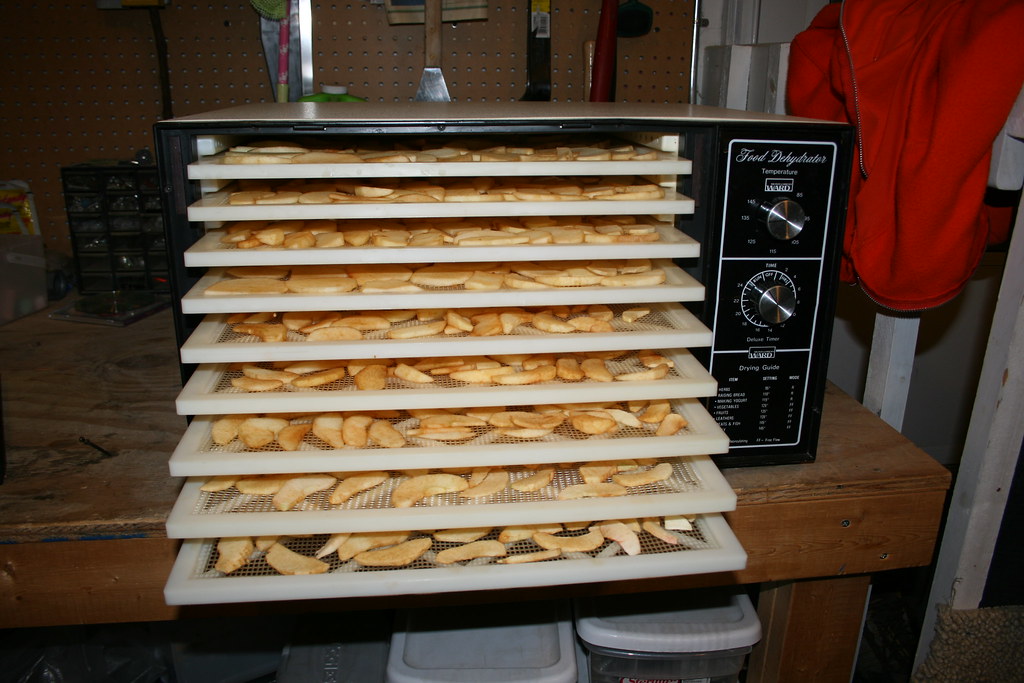We’re glad you’re here! Today, we’re talking about the intriguing subject of freeze drying and how it relates to dehydrators. Freeze drying is a popular option for everything from fruits and vegetables to meats and even ice cream because it is recognised for its ability to preserve flavour, texture, and nutrients in food. Can a dehydrator be used for freeze-drying?
No, freeze drying cannot be done in a conventional dehydrator. Both freeze drying and dehydration remove moisture from food, but they are different processes that require different tools. Specialised equipment is needed for freeze drying in order to achieve and sustain extremely low temperatures and a vacuum atmosphere. These circumstances must exist in order for the sublimation process to take place, in which water goes straight from a solid to a gas without going through the liquid phase.
Dehydrators, on the other hand, use heat to gradually eliminate moisture from food. They are intended to function at higher temperatures than freeze dryers, which may have an impact on the finished product’s quality and texture. Dehydrators work well with conventional dehydration techniques but lack the elements needed for freeze drying.
It is advised to get a specialist freeze dryer if freeze drying is something you are interested in doing because these dryers are made to carry out the procedure quickly and effectively.

Can a dehydrator achieve similar results to a freeze dryer in terms of texture and taste?
Although a dehydrator can successfully remove moisture from food, it frequently falls short of a freeze dryer in terms of texture and flavour. The natural texture, form, and flavour of the food being processed are all preserved by freeze drying.
Nevertheless, dehydrators continue to work well for conventional dehydration techniques and can successfully preserve a wide variety of goods. Purchasing a specialised freeze drier is advised if getting the closest outcomes to freeze drying is a top priority. Freeze dryers offer fine-grained control over temperature and vacuum levels, resulting in enhanced texture and flavour preservation.
Are there any specific types of food that are better suited for freeze drying?
Yes, given their unique qualities and the benefits offered by the freeze-drying process, some foods are more suited for the process than others. Here are a few instances:
- Fruits: Fruits that have been freeze-dried are popular because they have a crisp, light texture and maintain their natural colour, shape, and flavour. Bananas, apples, berries, mangoes, and other fruits are frequently freeze-dried.
- Vegetables: Vegetables that have been freeze-dried retain their original flavour, colour, and nutritional value. They are versatile and easily rehydrate. They can also be eaten as snacks. Peas, corn, carrots, and bell peppers are a few examples.
- Meats: Fish, cattle, and other cooked or previously cooked meats can be properly preserved with freeze-drying. Freeze-dried meats are practical for camping, hiking, or emergency food supplies since they are light, have a long shelf life, and are simple to rehydrate.
- Dairy Products: The natural flavour and texture of foods like ice cream, yoghurt, and cheese can be preserved while creating light, shelf-stable versions through the process of freeze-drying. In example, freeze-dried ice cream is a well-liked treat.
- Specialty Foods: Freeze drying can be useful for some specialised foods and components, including sauces, herbs, spices, and even full meals like soups or stews. The distinctive flavours and fragrances of these ingredients are preserved using this procedure.
Overall, freeze drying is appropriate for a variety of goods since it allows them to keep their nutritional value, freshness, and taste while prolonging their shelf life.

How does the cost of using a dehydrator compare to a freeze dryer?
When opposed to a freeze drier, utilising a dehydrator can cost much more. Here are some things to think about:
- Upfront Cost: In general, dehydrators are less expensive than freeze dryers. A dehydrator can cost anywhere from about $30 to several hundred dollars, depending on its size and features. The cost of bigger, commercial-grade freeze dryers can range from several thousand to tens of thousands of dollars. In contrast, freeze dryers are specialised equipment and typically more expensive.
- Operating Costs: In general, dehydrators use less energy than freeze dryers since they operate at lower temperatures and don’t require a vacuum. In order to keep temperatures low and provide the required suction, freeze dryers need more energy. Therefore, using a freeze dryer can eventually result in greater electricity expenses.
- Maintenance and Consumables: Dehydrators are typically easy to maintain; all that is required is routine cleaning and sometimes the replacement of trays or mesh screens. On the other hand, freeze dryers are more complicated equipment with extra parts including condenser units and vacuum pumps. They could need routine upkeep and sporadic replenishment of consumables like desiccant or vacuum pump oil.
- Scale of Production: The cost factors vary dramatically if you’re thinking about mass production or commercial use. Freeze dryers are better suited for commercial applications since they can handle larger quantities of food. In these circumstances, the added productivity and efficiency that a freeze dryer offers may make the investment justifiable.
The final cost comparison between a dehydrator and a freeze dryer will rely on your individual requirements, financial constraints, and the scope of food preservation you plan to carry out. A dehydrator may be a more cost-effective choice if your main concerns are home use and sporadic food preservation. A freeze dryer, however, can be a wise investment for individuals looking for the maximum level of preservation quality and efficiency on a wider scale.
Relevant Articles
Can Dogs Have Freeze Dried Strawberries? Is It Safe?
Are Lucky Charms Marshmallows Freeze-Dried?

Comments are closed